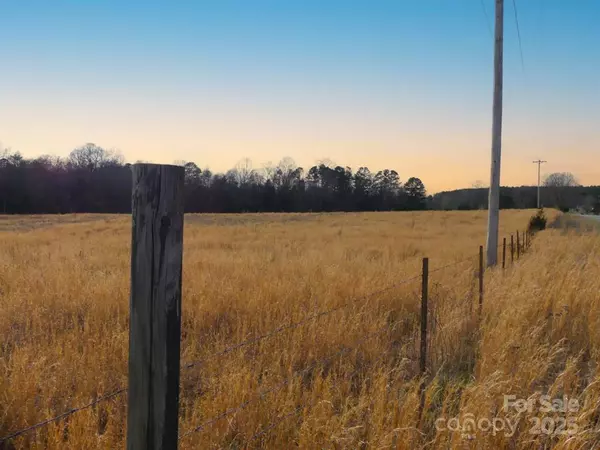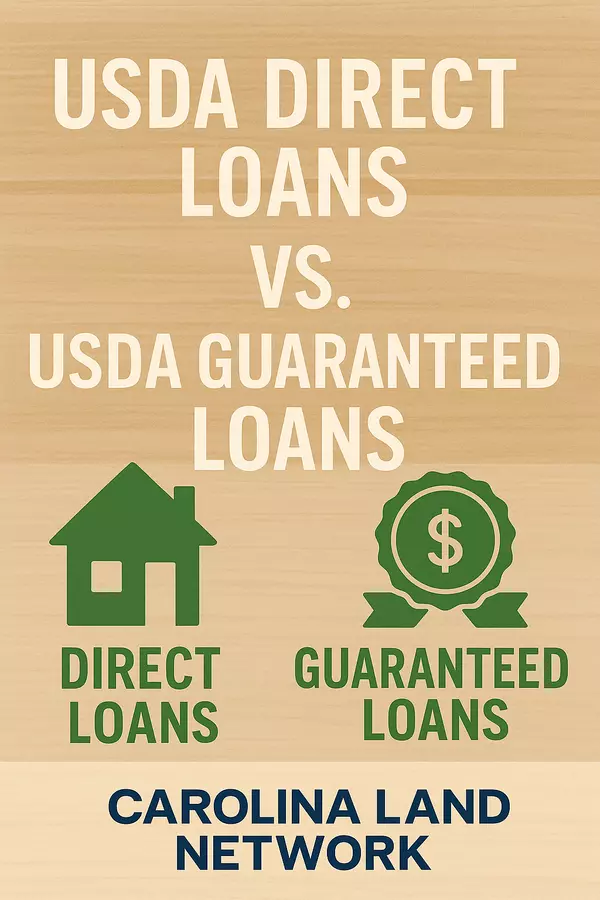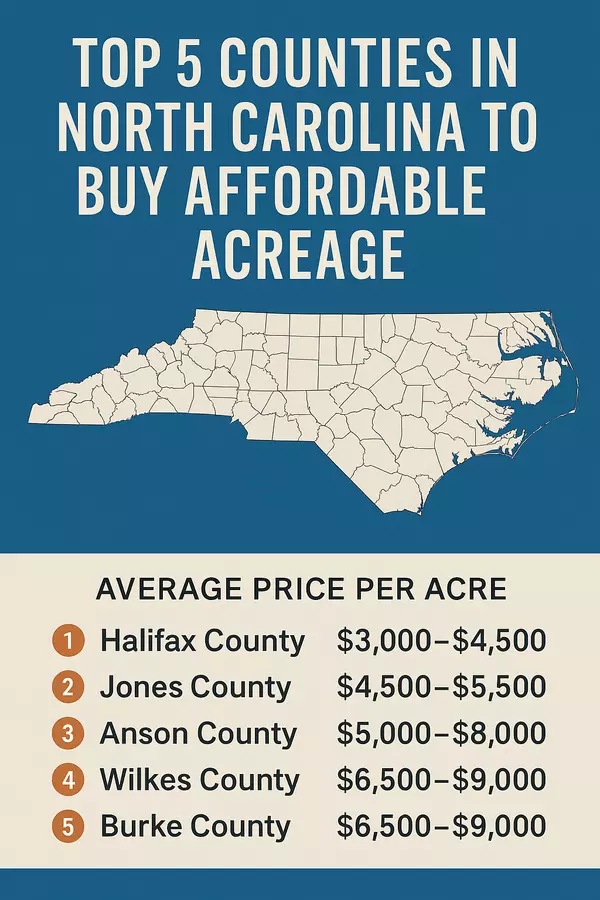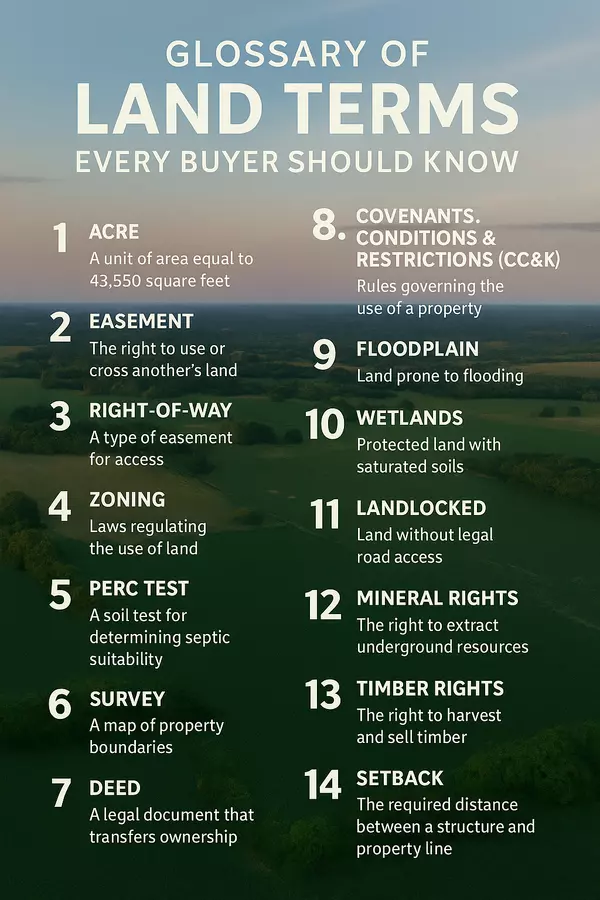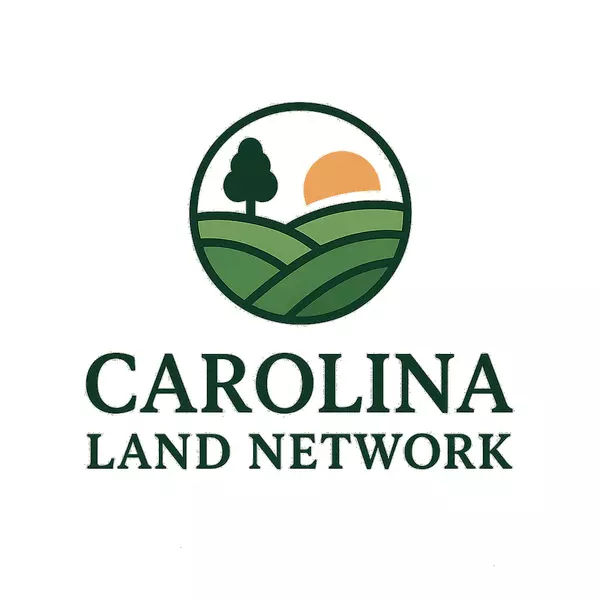How to Sell Land Without a Broker in North Carolina: A Step-by-Step FSBO Guide

Selling land without a broker, also known as "For Sale By Owner" (FSBO), is a viable option for many property owners in North Carolina. While real estate brokers provide expertise and convenience, selling your land independently allows you to avoid commission fees and maintain full control of the transaction. However, the process demands diligence, legal awareness, and strong marketing. This comprehensive guide walks you through every step — including how to leverage platforms like the Carolina Land Network to reach more buyers.
Step 1: Determine the Value of Your Land
The first step in any FSBO transaction is understanding your land's current market value.
Key Factors That Influence Land Value:
-
Location: Proximity to towns, highways, or desirable features like lakes and mountains.
-
Acreage and Shape: Larger, usable parcels generally attract higher prices.
-
Zoning and Permitted Uses: Residential, agricultural, recreational, or commercial zoning greatly affects potential use and buyer interest.
-
Utilities and Access: Water, electricity, sewer/septic access, road frontage, and right-of-way status all play a part.
How to Estimate Market Value:
-
Online Platforms: Use Zillow, Realtor.com, or LandWatch to browse similar parcels for sale.
-
Public Records: Search your county’s Register of Deeds and GIS mapping systems.
-
Land Appraiser: For an accurate assessment, you may hire a licensed land appraiser.
-
County Tax Office: Review the most recent tax value and see if it reflects current market trends.
Step 2: Gather Legal and Property Documents
Accurate and complete documentation will make your transaction smoother and protect you from liability.
Essential Documents:
-
Deed: Proves ownership and contains legal description.
-
Recent Survey: Verifies boundaries and easements.
-
Property Tax Records: Shows annual taxes and payment status.
-
Zoning Certificate: Confirms land use permissions.
-
Restrictive Covenants/HOA info: If applicable.
-
Soil/Site Evaluation: Especially useful for buyers planning to build.
North Carolina does not require a seller disclosure for vacant land sales, but full transparency is still recommended.
Step 3: Prepare the Land for Sale
While land doesn’t require staging like a home, it still needs to look appealing.
Improvement Tips:
-
Mow or clear overgrowth.
-
Mark boundary corners with flags or stakes.
-
Repair access roads or driveways.
-
Install signage. Include a contact number, parcel ID, and maybe a QR code linking to your listing.
A well-maintained property gives buyers confidence and helps justify your asking price.
Step 4: Market the Property
This step is absolutely critical — if buyers can’t find your land, they can’t buy it.
Online Listing Platforms:
-
Facebook Marketplace
-
Craigslist
-
Zillow / ForSaleByOwner.com
-
LandWatch, LandFlip, LandSearch
Use High-Quality Marketing Materials:
-
Aerial photos from Google Earth or a drone.
-
On-site pictures showing access, topography, views.
-
A compelling description (include acreage, zoning, utilities, restrictions, potential uses).
Join the Carolina Land Network: One of the most powerful ways to get exposure in North Carolina is by joining the Carolina Land Network Facebook group. With over 70,000 members, it’s the largest dedicated land and farm real estate community in the Carolinas.
Why it matters:
-
Reach serious buyers and local land agents.
-
Post your listing directly to an engaged audience.
-
Ask questions and get advice from landowners who’ve been through the process.
-
Free to join and free to post (subject to approval).
Step 5: Negotiate and Accept an Offer
When inquiries start coming in, be ready to communicate professionally and promptly.
Negotiation Tips:
-
Know your bottom line and possible terms (owner financing, cash deals, etc.)
-
Be transparent about taxes, access, restrictions, or needed improvements.
-
Use a basic NC Offer to Purchase contract template or ask an attorney to draft one.
Always document everything in writing. Verbal agreements are not enforceable.
Step 6: Coordinate the Closing
In North Carolina, real estate closings (even for land) must be handled by a licensed closing attorney.
Steps to Closing:
-
Title Search: The attorney verifies clear title.
-
Escrow: The buyer deposits funds with the attorney.
-
Deed Prep: The attorney prepares the new deed.
-
Execution and Recording: Both parties sign, and the attorney records the new deed with the county Register of Deeds.
You can agree to split costs, but buyers often cover closing fees.
Legal Note on Recording
North Carolina follows a "pure race" recording system, meaning the first party to record the deed holds legal title — even if another party had a prior unrecorded claim. Always make sure the deed is recorded promptly after closing.
Final Thoughts
Selling land on your own in North Carolina is entirely possible — and for many, well worth the effort. With the right preparation, accurate pricing, strong marketing, and legal support, FSBO land sales can be smooth and profitable.
By leveraging tools like high-quality online listings and the Carolina Land Network, you can dramatically increase visibility and connect with real, qualified buyers who are serious about rural and recreational property.
While professionals can be helpful in complex situations, this guide should serve as a strong foundation for navigating the process yourself — from listing to deed recording. Good luck with your sale!
Categories
Recent Posts
